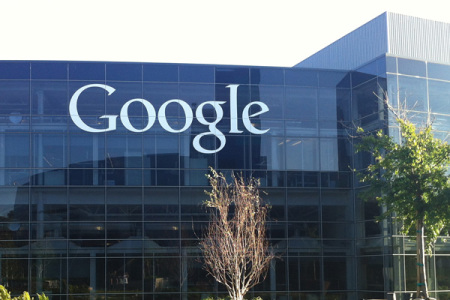Google changes policy after complaints about pro-life pregnancy center ads

Internet giant Google has initiated a new policy requiring pro-life pregnancy centers and abortion clinics to get “clearance” before they can advertise through the search engine.
Health clinics and organizations that want to run ads through Google using keywords relating to abortion in the United States and the United Kingdom now must first be “certified” by the left-leaning tech giant “as an advertiser that either provides abortions or does not provide abortions.”
“If you are not certified, you won’t be able to run ads using keywords related to getting an abortion,” the company said in an announcement of its new policy.
Google’s announcement comes days after receiving complaints from Democratic lawmakers about the impact that pro-life crisis pregnancy centers, which try to encourage women not to abort their unborn babies, are having through Google advertising.
According to Google, an advertiser will be considered one that provides abortions only if they provide abortions at their own facilities. These would include advertisers such as hospitals, abortion clinics or physicians offices.
Meanwhile, Google will consider an advertiser to be a non-provider if they don’t provide abortions at their own facilities.
“This may include organizations that provide pregnancy tests, ultrasounds, abortion counseling, general abortion information, abortion referrals, or that otherwise serve pregnant women but do not provide abortions,” the announcement reads.
“For the purposes of abortion advertiser certification and disclosure policy requirements, this may also include advertisers promoting non-service-based abortion content — for example, books about abortion or perspectives on abortion.”
Depending on how an advertiser is certified, Google will generate disclosures for advertisements.
Abortion advertisers will be labeled as “provides abortions” or “does not provide abortions.”
“The disclosures will show on all search ad formats and help ensure that these ads transparently provide basic information users need to decide which abortion-related ads are most relevant to them,” Google says.
Advertisers will have to apply for certification through a process in which they will be asked to explain whether or not their organization or facility provides abortions. Google also stresses that certification could be revoked if advertisers conceal or misstate information related to their organization.
The policy change comes as abortion activists have complained for years about how Google enables “deceptive” pro-life crisis pregnancy centers to advertise as if they were an abortion provider.
Google’s new policy directly followed a report from the U.K. news outlet The Guardian that stated that Google awarded up to $150,000 in free advertising to the California-based pro-life organization Orbia Group, an entity that operates a network of clinics funded by Catholic organizations.
Last week, Democrat Reps. Carolyn B. Maloney of New York and Suzanne Bonamici of Oregon sent a letter to Google, demanding that the platform remove advertisements promoting what they called “fake clinics.”
“Google should be well aware of the deceptive advertising practices of these types of organizations,” the lawmakers wrote. “Your company previously took numerous actions to remove advertisements for crisis pregnancy centers because they violate Google’s internal advertising policy.”
In 2014, Google removed a number of pro-life center advertisements after receiving complaints from the abortion lobbying group NARAL Pro-Choice America.
Meanwhile, a number of tech giants such as Facebook, Twitter and Apple have been accused of censoring the pro-life viewpoint.
Last October, Facebook censored a pro-life election ad that featured the stories of two babies who survived premature births.
Organizations that run pro-life pregnancy clinics have also faced censorship.
Google’s announcement also comes as a number of U.S. states have recently passed restrictive abortion laws.
Last week, the state of Alabama passed a near-complete ban on abortion that did not include exceptions for rape and incest.
In Missouri, lawmakers passed a bill criminalizing abortion after eight weeks of pregnancy without exceptions to rape and incest. In Georgia, a bill passed banning abortion after six weeks of pregnancy.






















